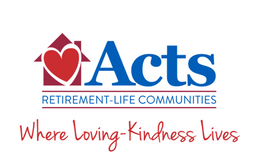Preparing for Retirement? 12 Month To-Do List
Here’s a handy to-do list that can help you prepare for the big day — and every day that comes after

Retirement can be a wonderful time in life, but it can also be a time of great change. It is important to be prepared for the challenges and opportunities that retirement brings. This means you've got to think ahead well before your retirement date and put plans in place to be ready to start your retirement in earnest.
This can be a difficult task, especially for anyone with an already busy life. Whether you're preparing yourself for retirement or helping your older parents transition into their own retirement, it's best to begin your planning early. At least one year before your official retirement date is most helpful. But what should you be doing during those 12 months before retirement? Here's a handy to-do list that can help you prepare for the big day — and every day that comes after.
Month 1
The first thing you should begin is to set your financial goals. There's no reason to wait until the beginning of your last year to do this. You can begin financial planning years or even decades before you retire. The goal is the same. You need to make determinations as to how much money you need to live comfortably and what your resources will be after retiring. This is helpful because you can set goals early and then work to reach them through careful planning.
Click here to read Financial Planning Advice for Older Adults
Month 2
Once you know your financial goals, it is time to review your finances. This includes your income, expenses and savings. You may need to make some changes to your spending habits in order to reach your retirement goals. Consider things like whether you have a 401(k), stocks or investment properties, as these can all supplement your retirement income. Like the previous step on your to-do list, you can also begin this step well before as the more time you have, the better.
Month 3
Another crucial step is to figure out your strategy when it comes to Social Security. As it's an essential piece of the puzzle for your financial capabilities, understanding how much you'll be receiving from Social Security during retirement is crucial. You may even discover that you need to postpone your final retirement date, as your monthly Social Security payments might be larger if you wait longer before retiring.
Click here to read about How to Apply for, and Start Collecting, Social Security Financial Security
Month 4
Next, you need to strongly consider whether you'll be working part-time after retirement. Doing so is an excellent way to supplement your retirement savings. A part-time job can provide you with some extra income to use in emergency situations. Just because you've hit retirement age doesn't mean you need to stop working completely, after all. Conversely, if you have a hobby that you always wanted to see if you could make money from, turning it into a part-time business is an excellent option.
Month 5
Next, it's high time to organize your health insurance options. For anyone over 65, Medicare is a valid option for healthcare. Yet Medicare is notorious for not covering everything. This means you may need to consider a supplemental insurance plan if you don't want to pay out-of-pocket for certain types of healthcare. If you're retiring before the age of 65, your options are more limited in that you'll have to find private insurance. This could impact your retirement budget quite significantly.
Thinking about a retirement community? What about a CCRC? If you are unsure what a CCRC is, read What is a Continuing Care Retirement Community (CCRC).
Month 6
Six months prior to your retirement date, it's time to take a long, hard look at your current financial debts. You don't want them weighing you down once you retire, as they can impact your retirement savings significantly, so now is the time to begin clearing any remaining debt from your balance sheet. Credit cards, student loans and car loans are all sources of debt you should consider clearing. Mortgage payments might also be on the agenda if you're keeping your existing home and it's not paid off yet.
Month 7
Your next step is to talk to a financial advisor, especially if you haven't done so already. Financial advisors are adept at helping you ensure your financial plans are well in order before your retirement date. This way you won't have to postpone retirement and keep working until your finances are in order. This is especially important if you have an extensive investment portfolio, as it might need rebalancing or adjusting.
Month 8
Whether you're aging in place in your existing home or planning on downsizing to a more affordable place, you should get your house in good condition now. Having to pay for home repairs can severely limit your retirement income if you're caught unawares by major expenses like having to replace a roof or a furnace. Making major repairs now while you're still employed means not having to sacrifice your retirement savings later.
Month 9
Speaking of living arrangements, you'll want to make some solid decisions as to where you'll be living during retirement. If you plan to sell your existing home, you'll need to find a real estate agent and begin that process. At the same time, you'll need to select a new place, such as a home or an apartment in a retirement community. Planning several months ahead ensures that this process, which has many expenses associated with it, is well underway before your last day of work.
Click here to read How Downsizing Can Benefit Your Health and Your Finances
Month 10
Now that all hard decisions are over and done with, the last few months before retirement are often much more laid back. You can begin planning everything you'll be doing during retirement. This includes things like travel plans and whether you want to get involved in the community by volunteering at places like local schools and museums. Retirement can be lonely unless you fill your days with fun and excitement, so put a plan in place to do so!
Month 11
With the finish line so close, it's important to take one more look at everything before you cross it. 11 months in is a perfect time to review your financial situation, your healthcare plans, and your living arrangements. Doing so now offers you a little wiggle room to get things organized before the big day.
Month 12
You've made it! It's time to celebrate. Retirement is a major life event, so it is important to acknowledge this major event. You can plan a big party, a special trip, or do anything else you can think of to mark such a special milestone of your life. Now it's time to take the next step – look into potential retirement living options, and this includes retirement communities. For more information on retirement communities, how to choose the best option for your life, and what you need to know about finances, downsizing, healthcare, and more, visit Acts Retirement or read any of these helpful articles:
- 3 CCRC Financial Advantages
- How to Downsize for Retirement
- What are Typical Average Monthly Retirement Expenses?

Acts Retirement-Life Communities is the largest not-for-profit owner, operator and developer of continuing care retirement communities in the United States. Headquartered in suburban Philadelphia, Acts has a family of 23 retirement communities that serve approximately 8,500 residents and employ 6,200 in Pennsylvania, Delaware, Maryland, North and South Carolina, Georgia, Alabama and Florida. For more information about Acts visit actsretirement.org.

